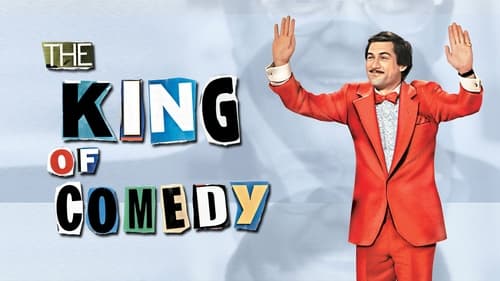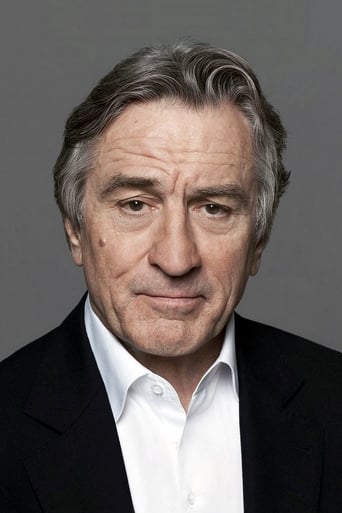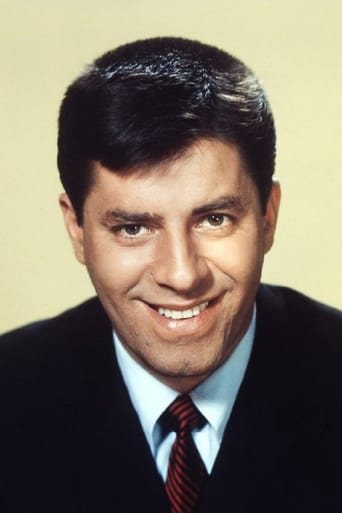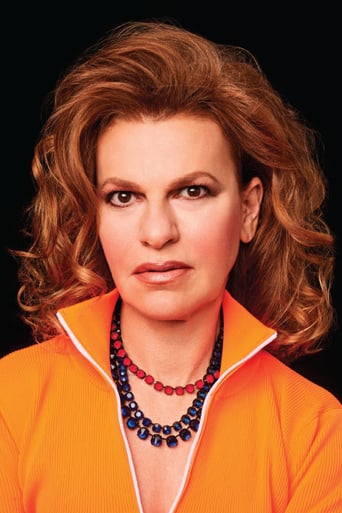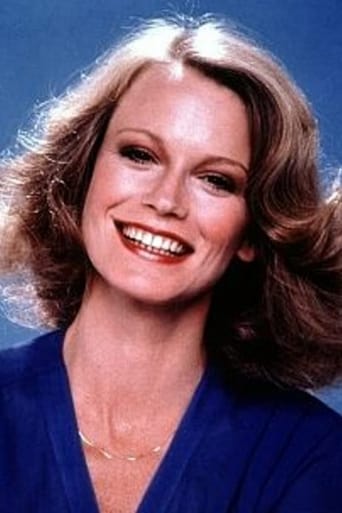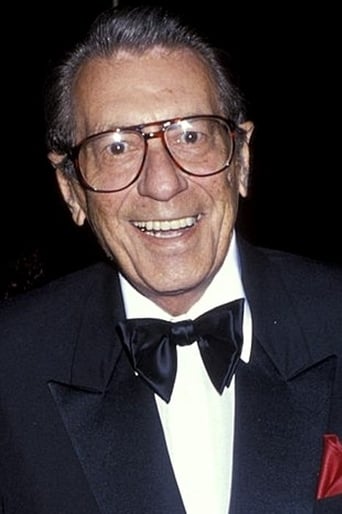Greenes
Please don't spend money on this.
Baseshment
I like movies that are aware of what they are selling... without [any] greater aspirations than to make people laugh and that's it.
Senteur
As somebody who had not heard any of this before, it became a curious phenomenon to sit and watch a film and slowly have the realities begin to click into place.
Nayan Gough
A great movie, one of the best of this year. There was a bit of confusion at one point in the plot, but nothing serious.
thedarkknight-99999
Scorsese took some risks to turn a familiar concept that is actually impossible to work on screen, or at least that what I thought.
A lot of familiarity has been revealed at the first half of the third act of the movie along with some clichéd dialogue. Also, the pacing slowed down a bit at the very beginning of the third act. That being said, these flaws didn't bother me so much as the rest of the third act was brilliant!That's by no means what I expected. I thought it's kinda light comedy, but it turned out to be a very subtle dark comedy. Still consider it a more light-hearted version of Taxi Driver! Very under-appreciated, though.(8/10)
Scott LeBrun
"The King of Comedy" is a knockout dark comedy that remains quite relevant in our current celebrity-worshipping North American pop culture. It shows what happens as Rupert Pupkin (Robert De Niro), a 34 year old hopeless nerd, is desperate for fame and fortune. A struggling stand-up comic, he tries and tries to endear himself to the nations' # 1 comedian / talk show host, Jerry Langford (a well cast, and excellent, Jerry Lewis). When the celebrity ultimately gives him the big brush-off, Rupert and his unhinged friend Masha (Sandra Bernhard, in an impressive breakthrough performance) abduct Langford.Working from an engaging script by Paul D. Zimmerman, master filmmaker Martin Scorsese is able to say a lot about the nature of celebrity. Even today, we do have a climate where people can be famous for no really good reason, yet still milk the situation for everything that it's worth. It also makes you think about peoples' priorities, and misplaced confidence in whatever "talent" they possess. As we can see from Ruperts' big moment in the spotlight, his material just isn't that great. (Although I personally got a chuckle out of the line, "her alcohol contained 2% blood".)It's all enacted with a fair amount of realism, a healthy amount of attention paid to the real-life machinations of the talk show world (both Johnny Carson's and Merv Griffin's series were used as influences), and some absolutely great performances by De Niro and Lewis. The supporting cast has no slackers, either: Bernhard is clearly relishing her role, De Niro's lovely then-wife Diahnne Abbott is appealing as a bartender whom he tries to romance, real life 'Tonight Show' producer Frederick De Cordova is solid as the producer of Langfords' fictional show, and various real life stars have funny cameos as themselves. Members of The Clash have bits as "street scum"; Mary Elizabeth Mastrantonio (in her film debut) is an extra in the opening crowd scene.Darkly humorous without ever being too, too outrageous, "The King of Comedy" is one of those films that's continued to look good and resonate, almost 40 years later.Eight out of 10.
albert9999
I didn't like the movie. It is built on 2 parts. The first part is a wanna-be comedian (De Niro) stalking a successful Comedian (Jerry Lewis). The second part obviously is about the Stalker kidnapping the Comedian. I couldn't watch the second part, because I was so annoyed that I had to stop.What makes this movie so cumbersome is that the main character (De Niro) is an annoying stalker which is shown endlessly. Even after the point is made, that he is a stalker, the showing of him stalking goes on and on and on and never stops. The movie has a main character which is near to unendurable. Yes, its great acting, but its in my opinion a thing that destroys the movie, to follow a main character which is annoying and boring.The photography is nice and the remaster looks great, the movie catches the 80s look and feel of New York well.It may be worth seeing out of academic interest, but seems entertaining only to masochists.
maurice yacowar
The film opens and closes on shots of ambiguous reality, the no-man's-land between real life and its representation on TV. The first shot is the grainy image — as off a TV screen — of Jerry Langford (Jerry Lewis) starting his act. But we don't see the TV set, just the TV graininess full-screen. Do this film's first image — which is usually of life — here is of a TV image. From here on, the media image trumps any reality. The film explores that gap.In the last shot Rupert Pupkin (Robert de Niro) stands at a mike milking the audience's applause (as Langford did earlier). He stands in the darkness with no clear context. He may or may not be on a stage or before a camera. He's pinpointed by lights, in his garish showbiz suit. He's not doing anything but basking in the lights and wallowing in the applause. Pipkin has completed his prison sentence for abducting Langford and he has been paid a million dollars advance for his best-selling confessional book. Now he is celebrated for being a celebrity not for anything he is doing. The act has supplanted the person. The shot seems so unreal it suggests it may be Pupkin's fantasy, an image of the ambition or desire his career has left unfulfilled despite his apparent success. The casting advances that meta-cinema mode. It plays in the grey area between reality and its mediation. Among the minor characters, Johnny Carson's producer Fred De Cordova plays Langford's producer Bert Thomas. The Ed MacMahon role is provided by McMahon's predecessor on the Jack Paar Tonight show, Ed Herlihy, effectively playing the oleaginous McMahon. (Johnny Carson himself was offered the Langford role but declined it.) Familiar guests Dr Joyce Brothers and Tony Randall play themselves. Media figures Bill Jorgensen, Marvin Scott, Chuck Stevens, William Littauer and Jeff David speak as themselves. Producer Edgar Scherick plays the network president. Director Scorsese plays the show's director, with his mother Catherine heard as Pupkin's "Ma-aaa." His father is at the bar watching Pupkin's TV appearance. DeNiro's wife Diahnne Abbott plays Rupert's romance. Other castings play against their familiar image. Comedian Sarah Bernhardt plays the needy, wealthy Masha with an abrasive ardor for star Langford. Her brashness and anger are an extension from her comic persona. Comic pianist Victor Borge appears as pianist in Pupkin's fantasy of his TV marriage — but neither cracks nor plays a joke. Similarly, Lewis is almost exclusively known as a manic comic but he plays this role absolutely straight, without a scintilla of a lapse into the persona that has defined him. De Niro's Pupkin is a dramatic variation on his usual Scorsese role: the constrained savagery of an alienated brute on the make. As Pupkin pulls a comic routine out of his family life frustrations, Scorsese makes this DeNiro character an adept aper of TV's false warmth. In his fantasy patting of "Jarelleh's" cheeks the De Niro and Lewis personae touch and spark. As Pupkin dreams of surpassing Langford, he — like the film itself— appropriates the royal title to which Jerry Lewis has the plausible claim. These castings convey the film's central confusion between role and reality, privileging the former. Artifice is all. Hence the abyss between the friendliness and warmth that Langford projects on air and his bleak solitude at home. There he eats alone. He walks around with a single golf club. He may well golf alone. In his mother's basement Pupkin practices a social glibness that he learned off TV — and criminally contrives to air it. Of course one of the main forms of this false human connection is love. "I'm going to love you like nobody's loved you" opens the film's theme song. Sick loves, twisted loves, abound in this arena of social fakery. In his fantasy Rupert expresses his love for Langford and Liza Minnelli, as if his emotion can bring their cardboard cutouts to life. Masha's passion for Langford has nothing to do with what either is or feels, just her random though total commitment. The theme is concentrated in the street scene where a woman tells Jerry she loves him. When he declines to speak on the phone to her cousin she yells at him, hoping he gets cancer. She too loves him like nobody loves him. But it's not a matter of come rain or come shine. It's a matter of reality supplanted by artifice. In this light the film foreshadows the inflection of American politics into reality TV show.




